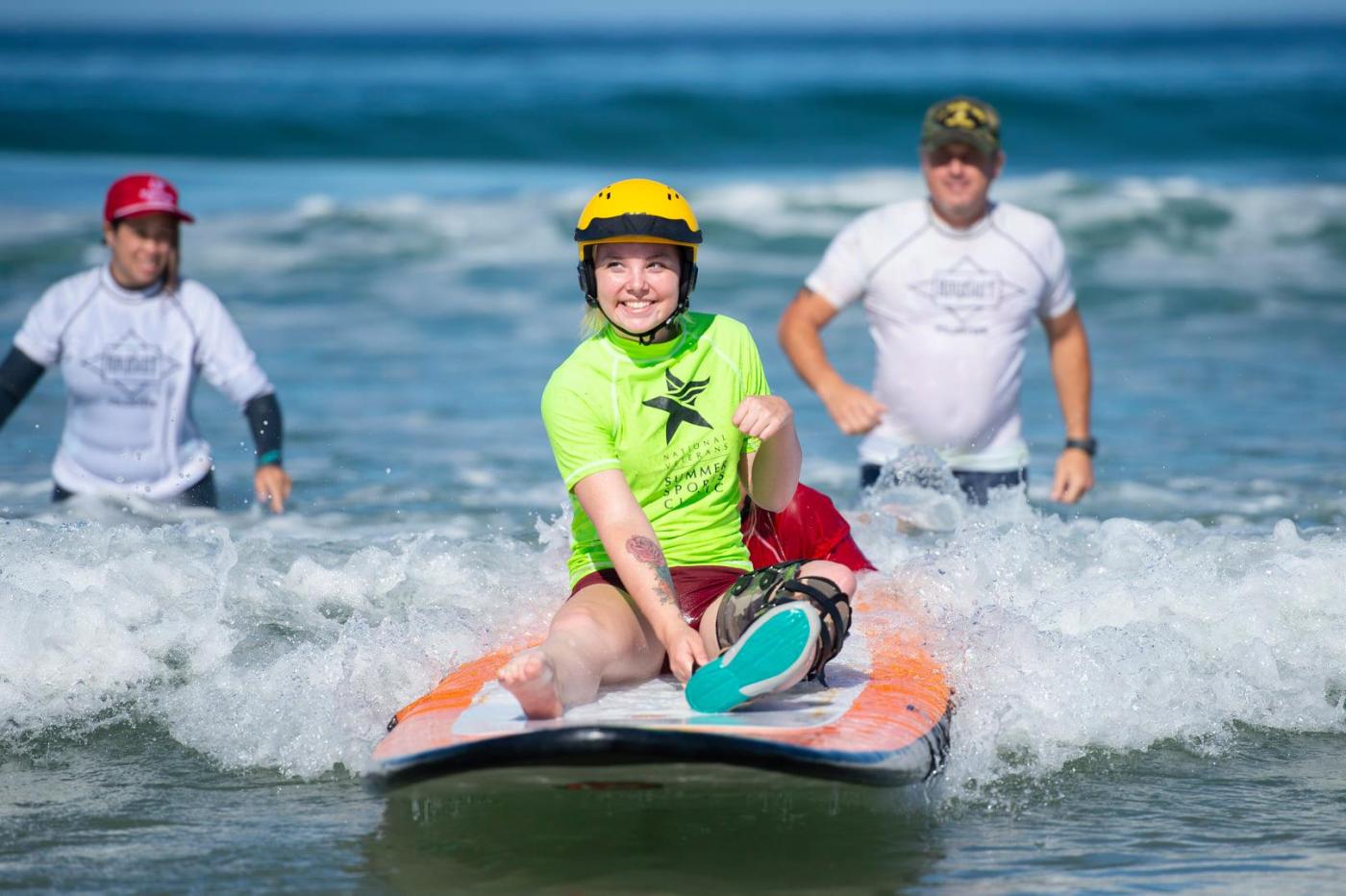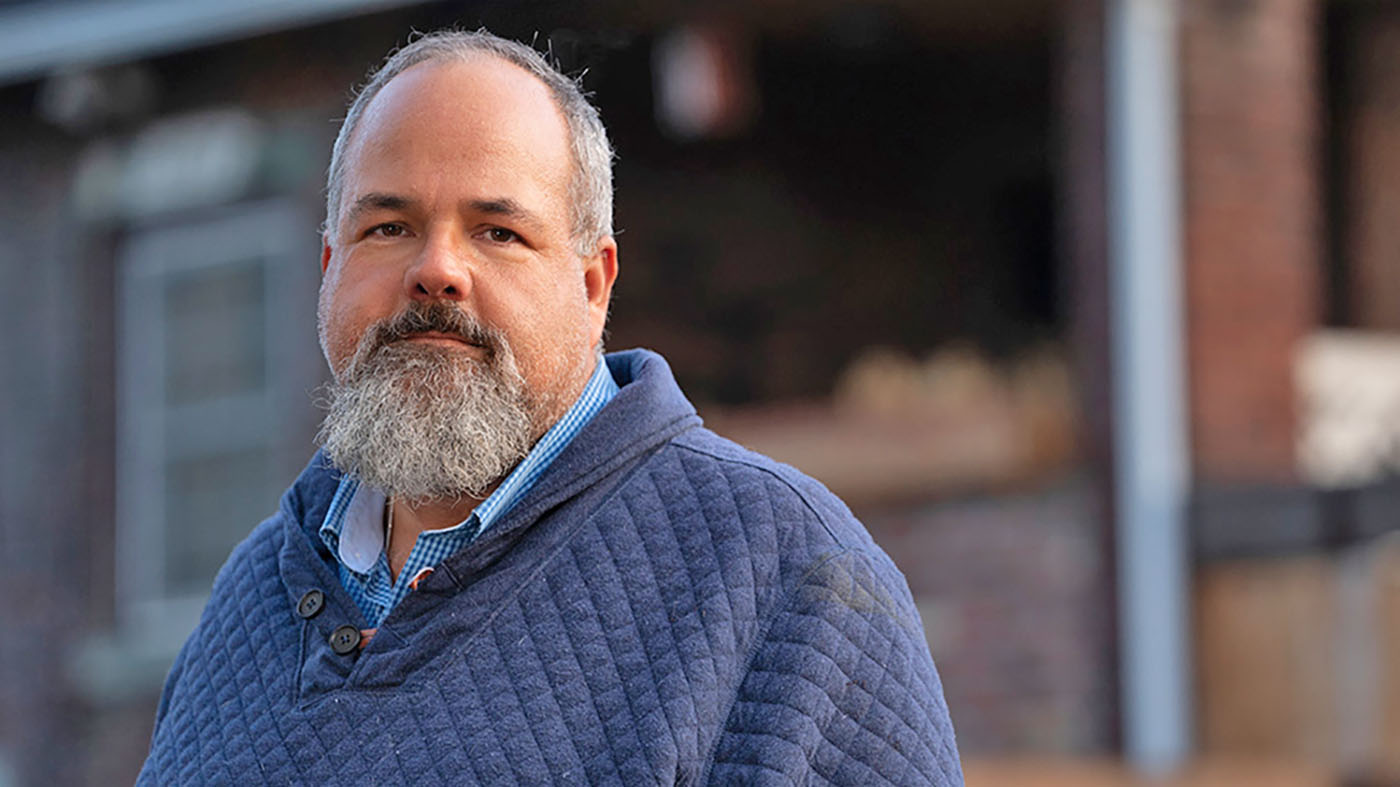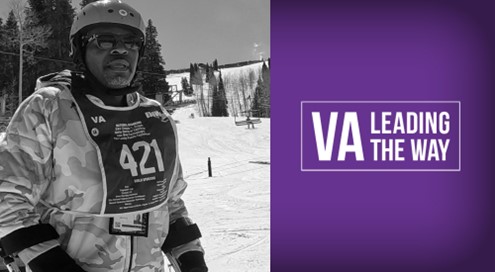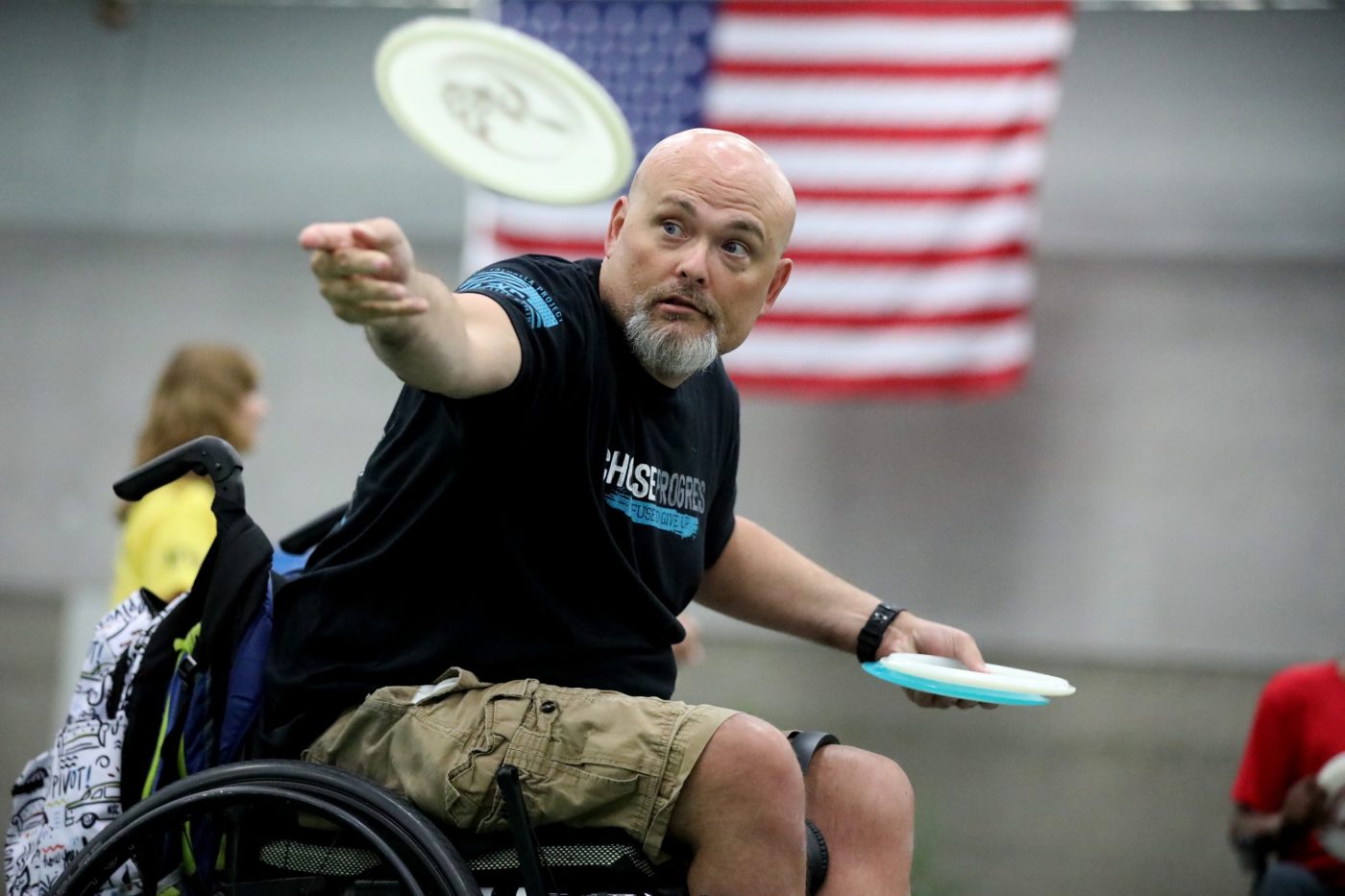You could see Marine Corps Veteran Olivia Nord’s wide-faced, toothy smile as she sped to shore while sitting on her surf board at the National Veterans Summer Sports Clinic in San Diego.
Her Minneapolis VA Medical Center recreation therapist, Kristin Powell, couldn’t help but beam as well.
“It was humbling,” Powell said. “Humbling to see her perseverance, her determination, and her autonomy. That’s empowering.”
Powell is one of 30 recreation therapists, physical therapists, occupational therapists, blind rehabilitation specialists and VA staff traveling and helping the 130 Veterans at the clinic.
The National Veterans Summer Sports Clinic is one of six, major national events held throughout the year to address the needs of all Veterans recovering from post-traumatic stress, as well as amputations, blindness, paralysis, mobility issues and more.
Lasting effects of evidence-based therapy
“From an evidence-based perspective, this shows that working with our Veterans in a variety of formats – clinically, medically and engaging them through recreation – helps improve their whole spectrum of health. We know this proves it helps them heal physically, emotionally, mentally, through all domains.”
Powell was there when Nord was first wheeled into the Minneapolis VA’s polytrauma unit Jan. 12, 2019, slowly coming out of a coma.
About five weeks earlier, Nord just graduated from Marine Corps basic training. She and her mom were coming home from the airport when a driver going the wrong way slammed into their car head-first. Two of their friends were killed in the car and her mother had a crushed pelvis and other injuries. Nord was nearly killed with a severe brain injury, shattered femur, torn aorta and lacerated liver. She still can’t use her left arm and walks with a brace on her left leg.
“I remember working with her from the beginning when she was barely awake from the coma,” Powell said. “To see her here, on a surfboard, in a sailboat, to see her walk around and create new friendships and walking distances in the community she doesn’t normally walk, or to have dinner with friends, it brings it full circle. It’s the epitome of what we strive for as rec therapists.”
“I want this to make me feel better, and more importantly, get my health back in order and get off the meds. That’s why we’re all out here.”
— Ralph Perpignan, talking about what he hopes to accomplish by participating in adaptive sports
Veterans shared those sentiments throughout the clinic.
Ralph Perpignan from the Washington, D.C., VA Medical Center, said this was a chance to turn his life around.
“I want this to make me feel better, and more importantly, get my health back in order and get off the meds. That’s why we’re all out here.”
Other Veterans who have already been using adaptive sports said they’ve already seen the change. Mark Whitson from the Albuquerque VA Medical Center, who lost his left leg, was surprised to find he was a natural in kayaking.
“So far, what I’ve been doing with adaptive sports, it’s life changing,” he said. “Not just for me, but my family. It’s changed me mentally, physically – I’ve lost 50 pounds – it’s really been life changing. It’s very exciting. I’ve had a great time.”
Life-changing results
David Tostenrude, acting Summer Sports Clinic director who also oversees the National Veterans Wheelchair Games, said the clinical results last long after they leave the event.
“The sport is just the tool,” he said. “When I see Veterans going beyond where they thought they were capable – sailing, riding a bike again when they thought they couldn’t – it develops skills, fitness, coordination and techniques to overcome their disability.
“When an individual with a disability is not focused on their injury, they are focusing more on getting back to work, going back to school or being a parent and being active. They’re not in the (hospital). We have seen with all of our national programs that our Vets, over time, take better care of their skin, and it helps with depression, addiction and a host of other secondary issues.”
Tostenrude said he hopes to reach out to more Veterans earlier in their injuries.
“Mental health, blind rehabilitation, physical medicine, spinal cord injuries, we want to make what we do part of their rehabilitation process. The earlier Veterans get into this type of rehabilitation, the sooner they can get and stay healthy. The longer they wait, it’s harder.”
Topics in this story
More Stories
Be ready before a suicide crisis by learning about resources that are available. You don’t have to face it alone.
Army Veteran John Wade participated in the 38th annual National Disabled Veterans Winter Sports Clinic, continuing to live his life to the fullest.
Veterans and volunteers interested in registering online for the 43rd National Veterans Wheelchair Games (NVWG) can do so now through April 5, 2024.








Very interesting!
N/a
First time hearing this though, but it is very nice sport to take part in.